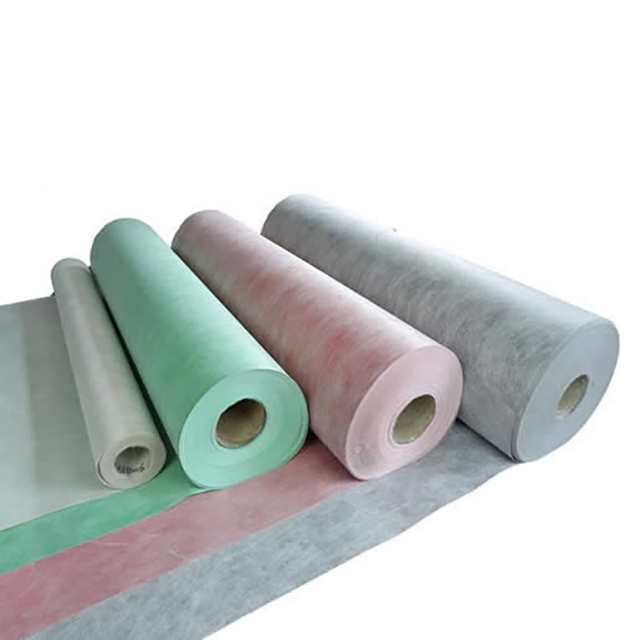Views: 0 Author: Site Editor Publish Time: 2025-03-21 Origin: Site







Is PVC truly waterproof? Many rely on it for water-related applications, but how effective is it really?
In this post, we’ll explore PVC’s waterproof properties, examining its performance and why it’s such a popular choice for various applications. You’ll learn about its strengths and best uses for waterproofing.
PVC, or Polyvinyl Chloride, is naturally waterproof. It’s one of the key reasons it’s widely used in waterproofing applications, like pipes, roofing membranes,pool liners and PVC waterproof membranes. PVC’s ability to resist water penetration makes it ideal for environments that are constantly exposed to moisture. Whether it’s for plumbing systems or outdoor applications, its water resistance ensures long-lasting protection.
The waterproof quality of PVC comes from its molecular structure. The material forms a tight, non-porous barrier that prevents water from seeping through. This natural resistance to water absorption ensures that PVC doesn’t degrade or weaken over time, even under prolonged exposure to moisture.
Additionally, PVC resists damage from chemical corrosion and UV rays, further enhancing its waterproof capabilities. Whether in roofing or piping, PVC continues to offer reliable protection against water damage, making it a preferred choice in many industries.
While PVC is highly waterproof, it isn't entirely impermeable. Factors like temperature fluctuations, physical stress, and exposure to harsh chemicals can impact its waterproof qualities. For example, PVC may soften or warp when exposed to high temperatures, which could compromise its ability to resist water. Similarly, certain solvents and chemicals might degrade its structure over time, reducing its effectiveness as a waterproof barrier.
Despite these limitations, PVC remains one of the most reliable waterproof materials for everyday use, especially when maintained properly.
PVC is well-known for its ability to resist water and moisture, making it highly effective in wet environments. It is widely used in plumbing, drainage systems, and waterproof covers. The material's waterproof properties are crucial in applications like water supply systems and wastewater pipes, where moisture exposure is constant. PVC's seamless design ensures water doesn’t seep through, maintaining a dry environment over time.
In roofing applications, PVC membranes act as a protective barrier, preventing water infiltration and avoiding structural damage. Its UV resistance also allows it to withstand harsh outdoor conditions, making it a reliable choice for both residential and commercial waterproofing.
In roofing applications, PVC waterproof membranes act as a protective barrier, preventing water infiltration and avoiding structural damage. Its UV resistance also allows it to withstand harsh outdoor conditions, making it a reliable choice for both residential and commercial waterproofing.

PVC waterproofing is widely used due to its excellent ability to resist water and moisture. Here are some of its most effective applications:
Pools: PVC is perfect for pool liners as it can withstand continuous water exposure, preventing leaks and reducing maintenance costs.
Rooftops: PVC membranes are commonly used on commercial and residential roofs to prevent water damage, offering long-lasting protection.
Basements and Foundations: PVC’s waterproofing properties make it ideal for below-ground applications where water intrusion is a concern.
Drainage Systems: PVC is also used in piping systems, ensuring that water flows efficiently without causing damage or leakage.
Wet Areas: Areas like bathrooms, laundry rooms, and decks benefit from PVC waterproofing due to its resistance to humidity and moisture.
PVC is a reliable and cost-effective option for most waterproofing needs. Here's why it works well in many situations:
Durability: PVC is highly durable, resistant to UV rays, and can last for decades, making it a long-term solution.
Cost-Effective: Compared to other waterproofing options, PVC offers a budget-friendly choice that doesn’t compromise on performance.
Practicality: It’s easy to install and maintain, making it an ideal option for both residential and commercial applications.
Flexibility: PVC can adapt to various environmental conditions, providing reliable protection in mild to moderate climates.
PVC is ideal for many projects where water resistance is key, but it may not be the best choice in extreme conditions. For typical waterproofing tasks, it’s a dependable solution.
PVC is highly waterproof, making it ideal for most standard waterproofing applications. However, it is not completely impervious under extreme conditions. Exposure to harsh elements or extreme temperatures can weaken its effectiveness.
For long-lasting and reliable waterproofing, consider using high-quality PVC membranes like those offered by PENNINT. Their durability ensures lasting protection in most environments.
Q1.Is PVC truly waterproof?
PVC is highly waterproof and prevents water penetration in most applications. However, it may not be fully impervious under extreme conditions.
Q2.Can PVC be used for all waterproofing projects?
PVC is ideal for most waterproofing tasks, but it is best used in environments not exposed to extreme temperatures or chemicals.
Q3.Does PVC degrade over time when exposed to water?
PVC is durable and resistant to water, but prolonged exposure to harsh chemicals, UV light, or extreme temperatures can affect its waterproof properties.